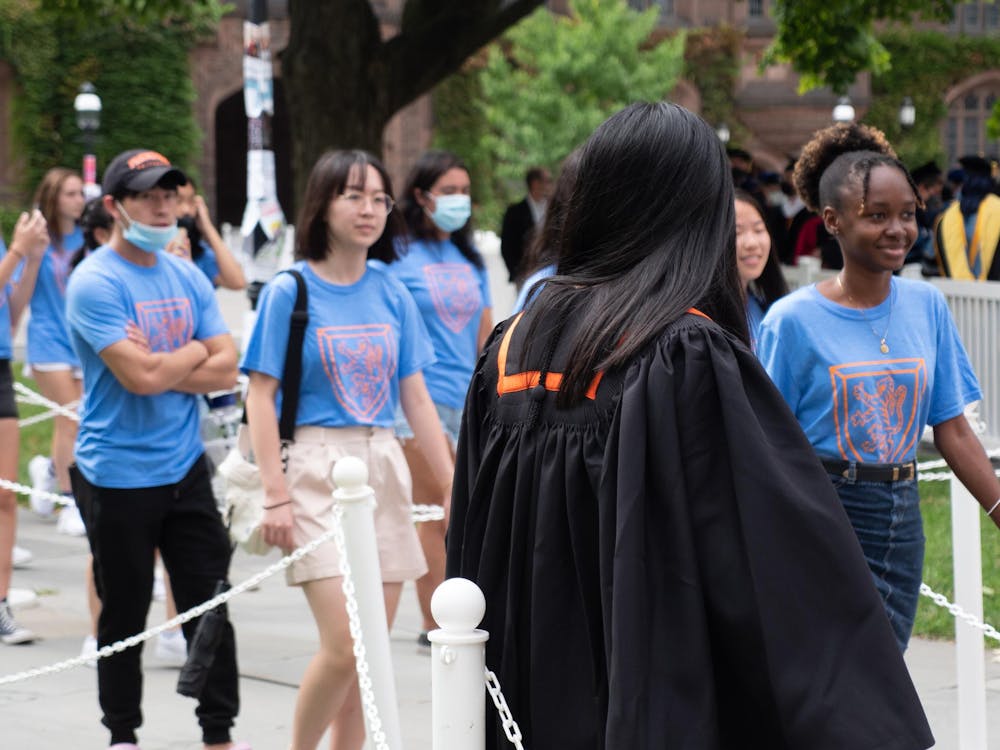On October 3, columnist Beni Snow's article titled "Crime at Princeton" made the bizarre claim that "our legal safety is lacking" from underage drinking laws. His article continues to explain how the laws aren't productive. At the end, he calls on President Eisgruber to advocate for lowering the minimum drinking age to 18 by saying that, "The current system is not stable."
His position is myopic. What Snow doesn't — and other college students don't — realize is that the minimum drinking age law is one of the most rigorously studied public health laws in the country. The overwhelming majority of scientific evidence supports it. He omitted important facts about the law and failed to provide an iota of quantitative evidence to explain why the U.S. would be better off with a lower drinking age. Although it's unpopular among young adults, the minimum drinking age of 21 has saved countless lives.
Snow begins his argument by saying "a single Princeton cop" could "theoretically arrest dozens of students in a single night" before criticizing the U.S. for "criminalizing something legal in basically every other developed country." Both of these arguments suffer from the ad populum fallacy, meaning they are based solely on the idea that the majority's will is right. In other words, if Princeton students started stealing from each other, his logic would lead him to say, "we shouldn't punish these students because stealing is a common practice." He doesn't argue why underage drinking is or isn't a problem that requires enforcement.
Then, he recounts the history of how the current minimum drinking age was created. Snow explains that, historically, the age of majority was lowered from 21 to 18 at the state level and encourages a "state-by-state fight" to lower the drinking age. This has two flaws.
First, he implies that the drinking age should be lowered to stay in accordance with the age of majority. There's no legal reason as to why this needs to happen. The age of majority is simply the age at which people become legally responsible for themselves. A cursory glance at the laws will show that a person can't rent a car until 25, must be 35 to run for president, and has to reach 62 to receive Social Security. The U.S. doesn't have a singular age for fully endowing a person with all of its privileges, nor should it in the case of alcohol.
Second, Snow neglects to say why the laws were enacted. When states lowered the drinking age during the 1970s, they experienced significant increases in youth fatalities from alcohol-related driving accidents. Meanwhile, states with higher drinking ages had lower rates. Since the National Minimum Drinking Age Act's adoption in 1984, alcohol-related traffic deaths have been halved and the lives of 900 young people are saved each year — that's 33,300 lives in total.
This trend has been observed in other countries too. New Zealand lowered its alcohol purchasing age from 20 to 18 in 1999. Youth deaths spiked, and new drivers experienced a 15 percent jump in the chances of having an alcohol-related crash. In response to these increases, there were several popular movements to raise the drinking age. But the efforts were quashed by the alcohol lobby.
Snow is quick to point out that "sales tax revenue is valuable." But I don't think that any amount of public funds could console the parents who would lose children to increased DUI fatalities. While it's true that Princeton doesn't experience alcohol-related driving problems, due to the administration's ban on cars, this isn't the norm. The majority of colleges permit students to have cars. We shouldn't make a public policy decision based on one anomalous school.
Snow concludes his article by asking, "Does anyone really believe that if Princeton police suddenly decided to start enforcing the underage drinking laws, every segment of the Princeton population would be equally targeted?" I couldn't find any evidence supporting the notion that minorities are targeted on campuses where underage drinking laws are enforced. The only discrimination in the law's enforcement is the fact that — as I argued in the spring — they are not applied to elite colleges. College presidents and police chiefs don't want a wealthy parent or captain of industry alumnus berating them for giving a drinking citation to a student, so they ignore the law.
It's a shame that this happens. There have been several schools — such as Frostburg State University — that have greatly lowered underage drinking rates by enforcing the law all while maintaining their tolerance programs that give medical attention to dangerously intoxicated students. Alcohol has its tendrils in a plethora of college problems ranging from depression to sexual assault, and any decrease in its consumption should be welcomed.
The underage drinking law isn't perfect. It could use some simple reforms, like the reduction of punishments in favor of treatment. But it has saved lives. A lower drinking age has deadly consequences for young Americans.
Liam O’Connor is a sophomore from Wyoming, Del. He can be reached at lpo@princeton.edu.








